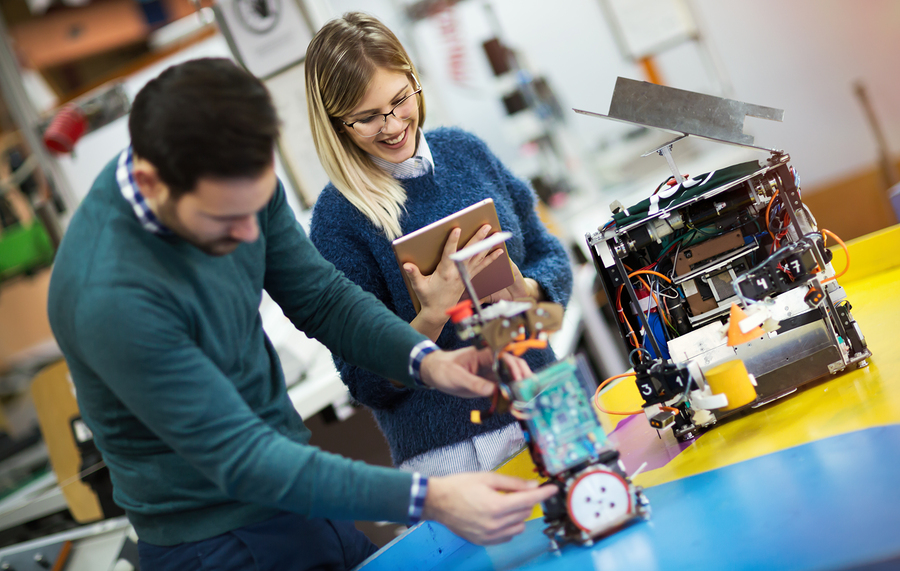Experts state that as higher education moves away from traditional conference-based lessons, that access to technology is guaranteed and that active learning programs are developed, classrooms will respond more to the needs of real-world work.
Image: Bigstock
Six trends, six challenges, and six technological developments will influence education in the coming years, according to the analysis of 71 education experts.
The NMC Horizon Report: 2018 Higher Education Edition, published by the EDUCAUSE initiative, defines the technological impact, changes and trends that will transform education in the next five years.
Six educational trends in the future
- In the short term (2019), the use of metrics in educational processes will grow to measure and document learning processes and the acquisition of skills such as creativity and collaboration. Universities need to use and create analysis and visualization software to describe data associated with learning.
- A redesign of learning spaces will begin to promote greater collaboration and interaction with technological devices. Strategies must incorporate digital elements that encourage active learning in a reorganized physical classroom.
- In the medium term (2021), Open Educational Resources (OER) will proliferate to reduce costs and increase the use of quality texts.
- Multidisciplinary approaches will flourish as an alternative to the traditional degree path, through interdisciplinary experiences and the achievement of alternative credentials and digital badges.
- In the long term (2023), the adoption of a culture of innovation is critical; campuses need to function as a focus for entrepreneurship, experimentation, and discovery to drive innovation; university experiences require the acceptance of failure as part of the learning process.
- Universities around the world have to forge partnerships so that teachers and students can access a greater variety of materials, data, and technologies that would not otherwise be available locally.
Six technological access challenges
- Universities need to create authentic learning experiences that connect students with real-world problems and work environments.
- Digital literacy improvement is critical to favor the development of technological skills that are transcendent for success in work and citizenship.
- Universities need to adapt to organizational designs of 21st-century companies. Educational institutions must adopt flexible structures based on teams to be innovative and adjust to the needs of students and employers.
- Digital equity should arise by providing sufficient bandwidth and internet speed to guarantee distance learning.
- Diminish economic and political pressures that obstruct access to education. For instance, these obstacles restrict providing scholarships, opportunities for foreign students or generating research.
- Rethink the role of the educator to act as a guide and facilitator focused on the student. Teachers need training in technological tools and active learning methodologies such as project-based learning and problem-based learning.
Six educational technology developments needed
- Analytical technologies to measure data related to the student, and with the aim of improving educational experiences.
- Makerspace environments to boost creation and learning.
- Adaptive learning technology that monitors progress and adapts to the requirements of each student.
- Artificial intelligence (AI) developments to improve online learning, adaptive learning software, and research processes, and to relieve tedious task for instructors.
- Mixed reality technology and content to promote useful educational experiences.
- Robotics —automated machines—as a facilitating tool in educational processes.
Experts state that as higher education moves away from traditional conference-based lessons, that access to technology is guaranteed and that active learning programs are developed, classrooms will respond more to the needs of real-world work.
This article from Observatory of the Institute for the Future of Education may be shared under the terms of the license CC BY-NC-SA 4.0 
)
)












)
Paulette Delgado
Paulette Delgado
Paulette Delgado